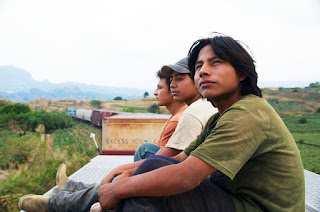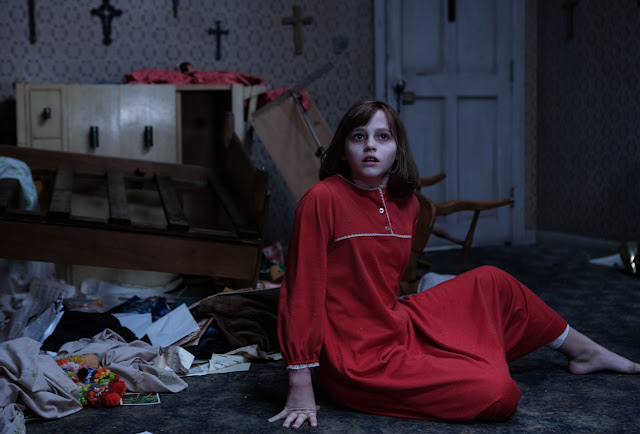“A powerful and harrowing portrayal of the plights of Latin
American illegal immigrants.”
Four South American youngsters embark on an American chase
in The Golden Dream (Spanish: La Jaula de oro),
the debut feature of Spanish-born director and co-writer Diego Quemada-Diez. Screened
in the Un Certain Regard section at the 2015 Cannes Film Festival, this
near-pantomimic drama explores the quandaries of illegal immigrants in Central
America.
From his rough slum in Guatemalan barrio, 16-year-old Juan
(Brandon Lopez) packs his meager belongings and starts a careless journey
towards North. Sharing the same passion with him are Sara (Karen Martinez), a
girl his age who has to cut her hair, tape her breast tight, pull on a cap and
pose as a boy named Osvaldo, and Samuel (Carlos Chajon) who is quite hesitant with
this trip.
Along the way, somewhere north in Chiapas, they pick up the
sweet-natured and kind-hearted Chauk (Rodolfo Dominguez), a Mayan who speaks virtually
no Spanish. While Juan displays aggressiveness towards Chauk, Sara and Samuel
try to befriend him. With a few possessions and cash in their pockets, the foursome
will cross borders in an adventurous road trip filled with misfortunes, tough
luck and acts of human kindness.
The Golden Dream
is an evocative and empathic social-realist drama. Through the dauntless
fortitude of four young adolescents, we are taken into a perilous illegal journey
from South America going up north. It is a grim reality and with outstanding
credibility, the film genuinely depicts this with powerful richly-detailed visuals.
The quartet must contend with corrupt police officers, merciless bandits, a
gang of kidnappers and human traffickers, and before stepping into the land of
opportunity, a US-border patrol sharpshooter. Their experience ranges from
being harassed by law enforcers, robbed, kidnapped, forced to work as drug
mules to being shot at. Despite violence along their trip, there are also
nuggets of kindness, such as strangers throwing fruits to those sneakily riding
the train and sheltering them from Mexican immigration police.
Though looking drab, the grainy and rough texture of camera
shots, as well as the natural lighting employed, further intensifies realism, giving
truer sense of bliss, fear or sadness. The vistas from the jam-packed trains
are stirring, inducing mixed emotions from the endless parched deserts to the
crowded ghettoes. The participation of 600 real migrants added further verisimilitude
to the film. Frame by frame, the images are haunting and breathing, magazine-spread-worthy
photos of the plight of illegal immigrants.
The movie is unpredictable, keeping audience wondering what
misadventures await the leads. But whatever the trains take them, they remain absolute
and hopeful. Juan may be abusive and hostile towards Chauk in the beginning but
the most touching moments are between the two as they develop brotherhood and
mutual dependence. The film speaks of human dreams and their costs, but in the
end, a harsher reality awaits them. As the cliché goes, not everyone who
reaches the finish line wins.
The Golden Dream is
a modest yet powerful study of a sensational political issue. It foregoes back stories
and talky scenes to give more time to depicting realities it wants to
convey. Imageries are harrowing and combined with the courageous and heartfelt performance
of its young casts, it successfully delivers its message.
Production
companies: Animal de Luz, Machete, Kinemascope
Cast: Brandon Lopez,
Rodolfo Dominguez, Karen Martinez, Carlos Chajon
Director: Diego
Quemada-Diez
Screenwriters: Diego
Quemada-Diez, Lucia Carreras, Gibran Portela
Producers: Inna
Payan, Luis Salinas, Edher Campos
Director of
photography: Maria Secco
Production designer:
Carlos Jacques
Costume designer:
Nohemi Gonzalez
Editor: Paloma Lopez
Carilo, Felipe Gomez
Music: Jacobo
Lieberman, Leo Heiblum



























0 comments:
Post a Comment